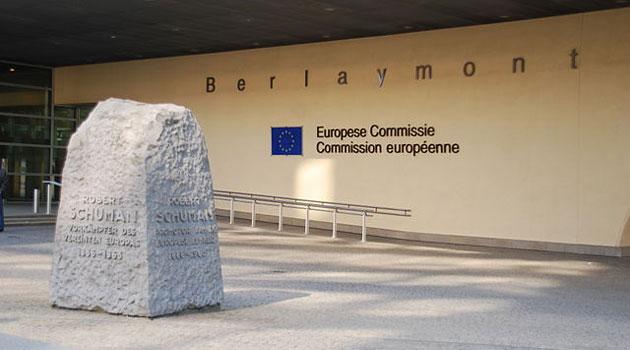European Commission warns Czechia: End the discrimination of Romani children in the schools

The European Commission (EC) has called on Czechia to stop discriminating against Romani children in their access to education. According to the EC, the country is not upholding the EU legal regulations on combating discrimination on an ethnic and racial basis, which is why Brussels started an infringement proceedings with Prague over its violation of EU law 10 years ago. The EC said Prague is not effectively addressing the problem of the segregation of Romani children in the schools, and it has now issued an additional letter of formal notice to which the Czech authorities must respond within two months and document what has been done to ameliorate these deficiencies when it comes to upholding the law.
The infringement proceeding has two phases. During the first phase, the EC sends the Member State a formal warning that the law is being violated and then sends a reasoned opinion. In the second phase, the violation of the law is discussed before the European Court of Justice.
Czechia, according to the EC, is not upholding the Race Equality Directive. That directive strictly forbids discrimination on the basis of ethnicity in key areas of life, including education. Brussels has now sent Prague an additional letter of formal notice to address the disproportionate, systematic assignment of Romani pupils into separate schools for children with disabilities, noting that the first letter of formal notice on this issue was sent to the Czech authorities 10 years ago.
“Since then, Czechia put an end to the ‘special or practical schools’ regime. However, the Commission’s findings show that Roma children are still overrepresented in separate classes or schools for pupils with mental / physical impairments or severe developmental or behavioral disorders,” the EC said.
“Furthermore, many Roma children who attend mainstream education in Czechia are also segregated in separate classes or schools, for example, in separate Roma-only classes or in Roma-only schools with lower education,” the EU executive said.
For those reasons, the EC is sending an additional letter of formal notice to Czechia, which now has two months to respond and address the shortcomings raised. “In the absence of a satisfactory response, the Commission may decide to issue a reasoned opinion,” the EC said – in other words, to take the next step in the infringement proceedings.
Assigning Romani pupils to special needs classes delays their inclusion into society, warns the manager of the ROMEA organization’s scholarship program
Štefan Balog, manager of the ROMEA organization’s Scholarship Program, warns of the negative impact of the unjustified assignment of Romani pupils into special needs classes. In his view, this step has a significant impact on their future inclusion into society. “This assignment of pupils into special needs classes, very often for no good reason, has a dire effect on their later inclusion into society, we can unequivocally state that from our work in practice with pupils and students,” he told Romea.cz.
The ROMEA organization, which regularly organizes motivational talks at primary schools as part of its Scholarship Program, encounters this problem right in the field. “We see the consequences of Romani pupils being assigned to such classes. Frequently they are so assigned thanks to quite mild forms of speech disorders that could be worked on in a regular classroom,” Balog said.
According to Balog, ROMEA understands the EC’s critique and agrees with it – however, he emphasizes that collaboration among many institutions and changes at many levels of the educational system are necessary to correct the situation.
“To resolve these problems it is necessary to involve many more institutions and change must also happen at many levels of the education system,” Balog concludes.
Czech principal says the EC’s call is absurd
Karel Bendlmajer, the principal of a primary school in the Mojžíř neighborhood of Ustí nad Labem, said the EC’s call to end discrimination is absurd. His school is attended by children from a nearby excluded locality, and he claims those who need an individual approach to their education receive it there. He told the Czech News Agency (ČTK) that on the contrary, he sees there being a problem with enrolling such children into special needs schools in the first place, because very often their parents do not consent to their attending such schools despite expert recommendations to do so.
“From my perspective this is absurd. It is possible that Romani children may be more represented in the special schools, but it certainly is not due to discrimination,” Bendlmajer claimed. He warned that parents must always agree to enroll children into special needs facilities and that this is problematic in the socially excluded localities. “Even if they have a thousand recommendations, without the consent of their parents they will not enroll into a special needs school,” the principal said. Such children are then given individual plans in the schools where they are enrolled and assistants to their educators function in those schools. Bendlmajer said Romani children are not put into separate classes at the Mojžíř primary school.
Bendlmajer also said that in response to the EC’s call, the state should discuss with the Regional Authorities as to where the Romani minority is most represented. In addition to the Ústecký Region, where his own school is located, there are many Roma in the Karlovy Vary and Moravian-Silesian Regions. “I believe it will clearly happen in the future that it will no longer work like that,” he added.
A similar critique from the EC over the treatment of Romani children is also being faced by Hungary, which also received a formal call to meet its obligations. In May 2023, the EC also filed a lawsuit against Slovakia over this issue with the European Court of Justice.